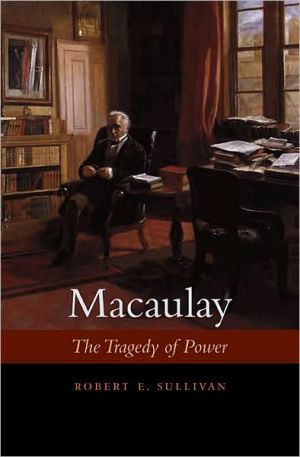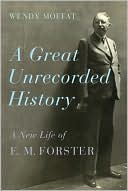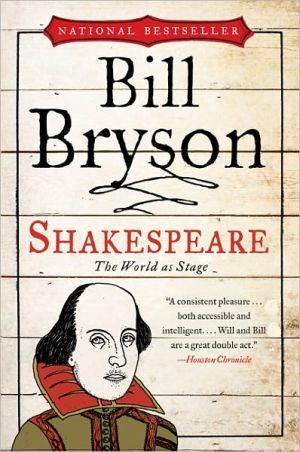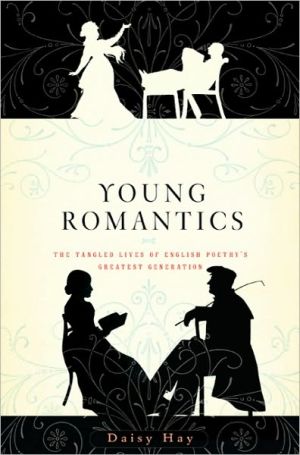Macaulay: The Tragedy of Power
On the 150th anniversary of the death of the English historian and politician Thomas Babington Macaulay, Robert Sullivan offers a portrait of a Victorian life that probes the cost of power, the practice of empire, and the impact of ideas.\ His Macaulay is a Janus-faced master of the universe: a prominent spokesman for abolishing slavery in the British Empire who cared little for the cause, a forceful advocate for reforming Whig politics but a Machiavellian realist, a soaring parliamentary...
Search in google:
On the 150th anniversary of the death of the English historian and politician Thomas Babington Macaulay, Robert Sullivan offers a portrait of a Victorian life that probes the cost of power, the practice of empire, and the impact of ideas.His Macaulay is a Janus-faced master of the universe: a prominent spokesman for abolishing slavery in the British Empire who cared little for the cause, a forceful advocate for reforming Whig politics but a Machiavellian realist, a soaring parliamentary orator who avoided debate, a self-declared Christian, yet a skeptic and a secularizer of English history and culture, and a stern public moralist who was in love with his two youngest sisters.Perhaps best known in the West for his classic History of England, Macaulay left his most permanent mark on South Asia, where his penal code remains the law. His father ensured that ancient Greek and Latin literature shaped Macaulay’s mind, but he crippled his heir emotionally. Self-defense taught Macaulay that power, calculation, and duplicity rule politics and human relations. In Macaulay’s writings, Sullivan unearths a sinister vision of progress that prophesied twentieth-century genocide. That the reverent portrait fashioned by Macaulay’s distinguished extended family eclipsed his insistent rhetoric about race, subjugation, and civilizing slaughter testifies to the grip of moral obliviousness.Devoting his huge talents to gaining power—above all for England and its empire—made Macaulay’s life a tragedy. Sullivan offers an unsurpassed study of an afflicted genius and a thoughtful meditation on the modern ethics of power. The Barnes & Noble Review I would be surprised if the excellent recent film The Young Victoria didn't stir up a new wave of interest in Queen Victoria and Prince Albert, who were smiled at throughout most of the twentieth century but now, with greater historical perspective, are acknowledged to have been impressive figures. The most influential historian of Victoria's own time was Thomas Babington Macaulay, author of the bestselling History of England from the Accession of James II (1848-59). Macaulay was the key formulator of the so-called "Whig interpretation" of history, extolling the British system of constitutional monarchy as established by the Glorious Revolution of 1688 and connecting that system with the success and perceived historical mission of the British Empire, at that time at its zenith. John Clive produced an excellent psychobiography of Macaulay in the 1970s, but only treated the historian's early life. Now Robert E. Sullivan's Macaulay: The Tragedy of Power (The Belknap Press of Harvard University Press) has given us a fine new study of Macaulay. Sullivan explains Macaulay's preeminence as a narrative historian, his tremendous cultural influence, and the way that "Above all, Macaulay sold the British Empire." Special emphasis is given to the years Macaulay spent in India, where he was instrumental in launching English as the subcontinent's second language, created the penal code, and managed "the re-creation of its British bureaucracy for the benefit of the classically educated alumni of the ancient universities." --From Brooke Allen's "READER'S DIARY" column on The Barnes & Noble Review
ContentsIntroductionHeirStarLegislatorSinister ProphetStatesmanEmpire BuilderThe Last Ancient HistorianThe LionBaron Macaulay of RothleyProcrastinatorPraeceptor Gentis AnglorumA Broken HeartEnvoi: ImmortalAbbreviationsNotesAcknowledgmentsIndex
\ Boston GlobeA magisterial biography of a man now nearly forgotten and always clearly misunderstood... Elegant, erudite, and enlightening.\ — David M. Shribman\ \ \ \ \ \ New Criterion[Sullivan's] biography is well paced and richly detailed...His book is an absorbing tour through the world of an elite Victorian liberal.\ — Jeffrey Collins\ \ \ \ Scotland on SundayIt is a testament to Sullivan's complex and sophisticated approach that I ended up both detesting and admiring Macaulay more...This is a fascinating, provocative study. In our era, of citizenship tests and pre-emptive strikes, when what makes, binds or breaks a nation is a pressing concern, Macaulay's legacy is more instructive than ever to re-examine.\ — Stuart Kelly\ \ \ \ \ \ SpectatorSuperbly researched...[An] impressive and subtle book.\ — Raymond Carr\ \ \ \ \ \ Sunday Herald[A] virtuosically argued and detailed account.\ — Brian Morton\ \ \ \ \ \ Publishers WeeklyOn the 150th anniversary of his death, the great British historian Thomas Babington Macaulay (1800–1859) remains an enigmatic character, steeped in contradictions between his actions, his proclamations and his interior life. The latter is not Sullivan’s central concern. Thus, the concealed love Macaulay felt for his two youngest sisters is not far developed here. Sullivan concentrates instead on Macaulay’s uncanny understanding of England’s grand position in the world. The author observes that “long before Henry Kissinger, [Macaulay] understood that 'power is the ultimate aphrodisiac.’ ” What makes him a unusual figure for our time is his classicism—his chief models being Herodotus, Thucydides, Tacitus—as well as his position as a bestseller with a multivolume history of England. Macaulay’s literary interests included Milton, Dryden, Byron and Bacon, but Machiavelli was the overriding influence, says Sullivan, a historian and associate vice president of Notre Dame. Macaulay detested Dickens for his socialistic smarminess; he anticipated Ivan Pavlov more than Sigmund Freud; and he was an abolitionist who didn’t believe in abolishing slavery. Overall, Macaulay remains a confounding figure, whose personality lies largely unraveled. 18 b&w illus. (Dec.)\ \ \ \ \ Library JournalThe word doubleness appears frequently in this exceptional book about the great 19th-century historian Thomas Babington Macaulay. Macaulay, argues Sullivan (history, Univ. of Notre Dame), lived a life of duplicity on many issues, starting with his feigned Christianity. This groundbreaking study focuses on Macaulay's "sensibility": How did he conceive of himself and the world in which he worked and lived? Macaulay's strength was his command of language; his weakness, a profound lack of empathy for others' situations coupled with a refusal to consider anything that might contradict his preconceived opinions. In India, he rewrote the nation's law code but never bothered learning Indian languages or studying its cultures; in his writings, he repeatedly urged genocide. Sullivan's portrait of the historian-statesman is unimpeachable, based on a deep reading of Macaulay's voluminous correspondence, journals, speeches, essays, and books. The man who emerges from this detailed portrait is loathsome but also sad. That he was popular in his own age says worlds about emerging values in mid-19th-century England. VERDICT Enthusiastically recommended; this exceptionally well-written work will please all serious lovers of history, not just academics.—David Keymer, Modesto, CA\ \ \ \ \ The Barnes & Noble ReviewI would be surprised if the excellent recent film The Young Victoria didn't stir up a new wave of interest in Queen Victoria and Prince Albert, who were smiled at throughout most of the twentieth century but now, with greater historical perspective, are acknowledged to have been impressive figures.\ The most influential historian of Victoria's own time was Thomas Babington Macaulay, author of the bestselling History of England from the Accession of James II (1848-59). Macaulay was the key formulator of the so-called "Whig interpretation" of history, extolling the British system of constitutional monarchy as established by the Glorious Revolution of 1688 and connecting that system with the success and perceived historical mission of the British Empire, at that time at its zenith. John Clive produced an excellent psychobiography of Macaulay in the 1970s, but only treated the historian's early life. Now Robert E. Sullivan's Macaulay: The Tragedy of Power (The Belknap Press of Harvard University Press) has given us a fine new study of Macaulay. Sullivan explains Macaulay's preeminence as a narrative historian, his tremendous cultural influence, and the way that "Above all, Macaulay sold the British Empire." Special emphasis is given to the years Macaulay spent in India, where he was instrumental in launching English as the subcontinent's second language, created the penal code, and managed "the re-creation of its British bureaucracy for the benefit of the classically educated alumni of the ancient universities."\ --From Brooke Allen's "READER'S DIARY" column on The Barnes & Noble Review\ \ \








